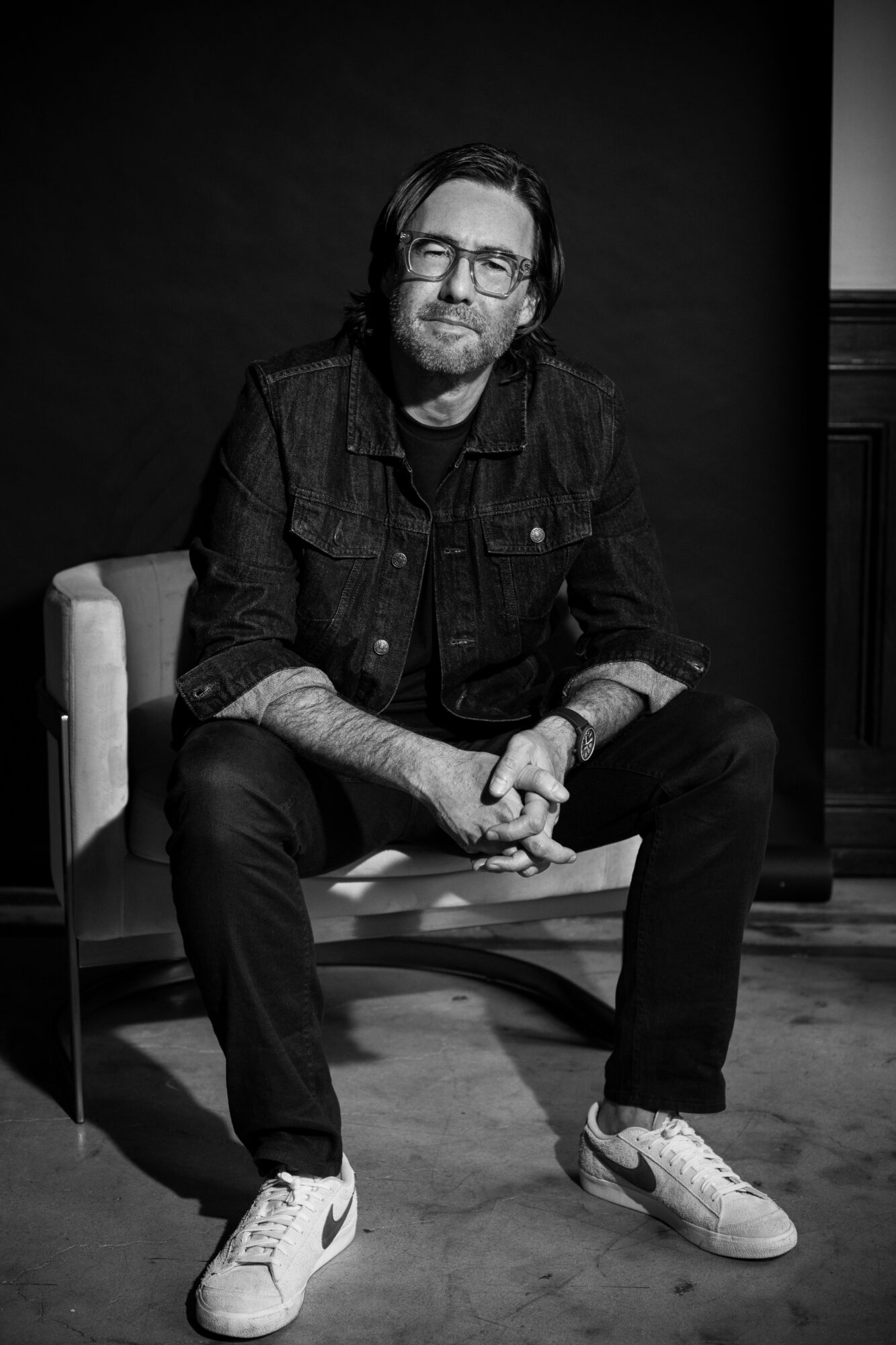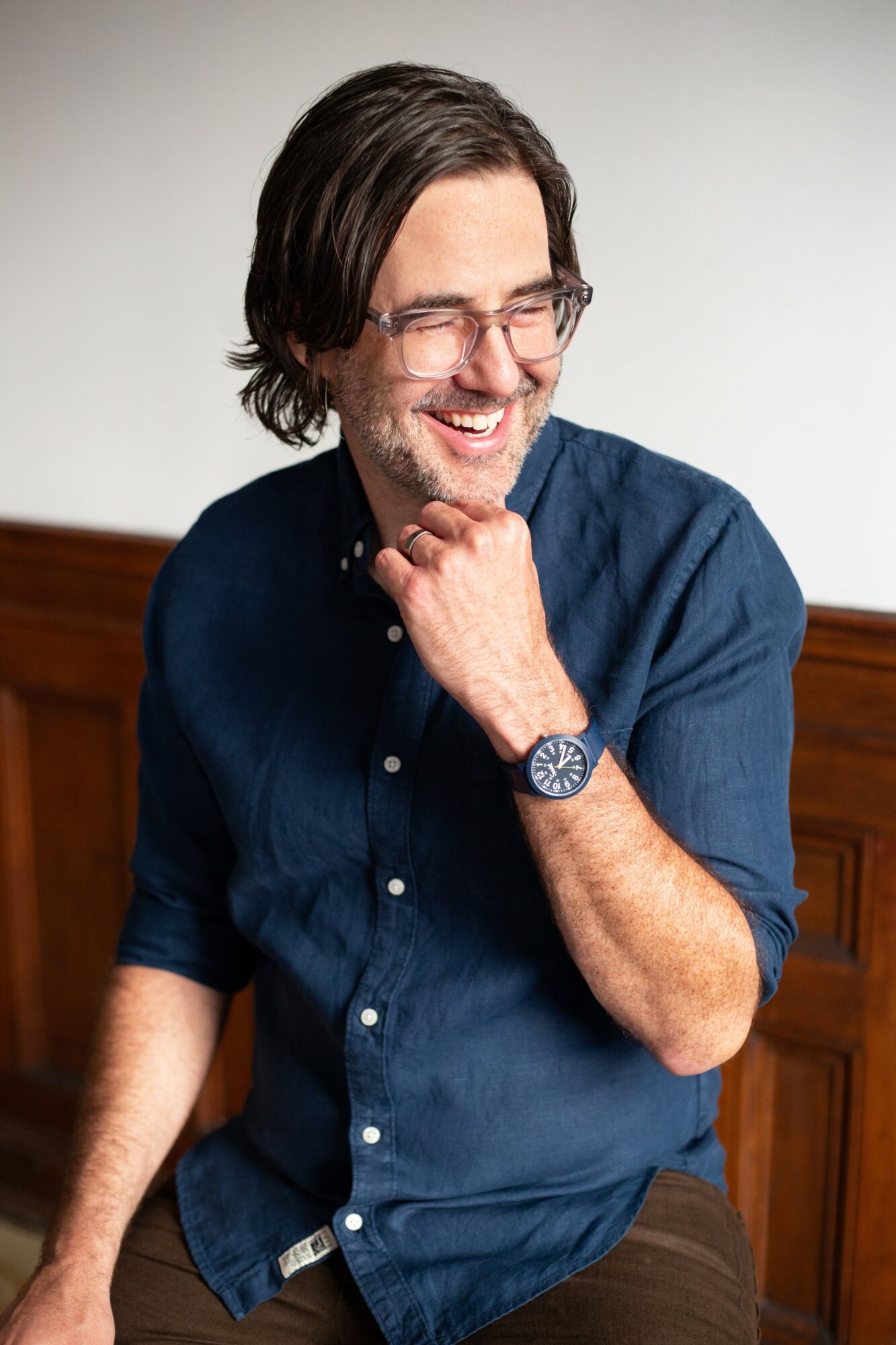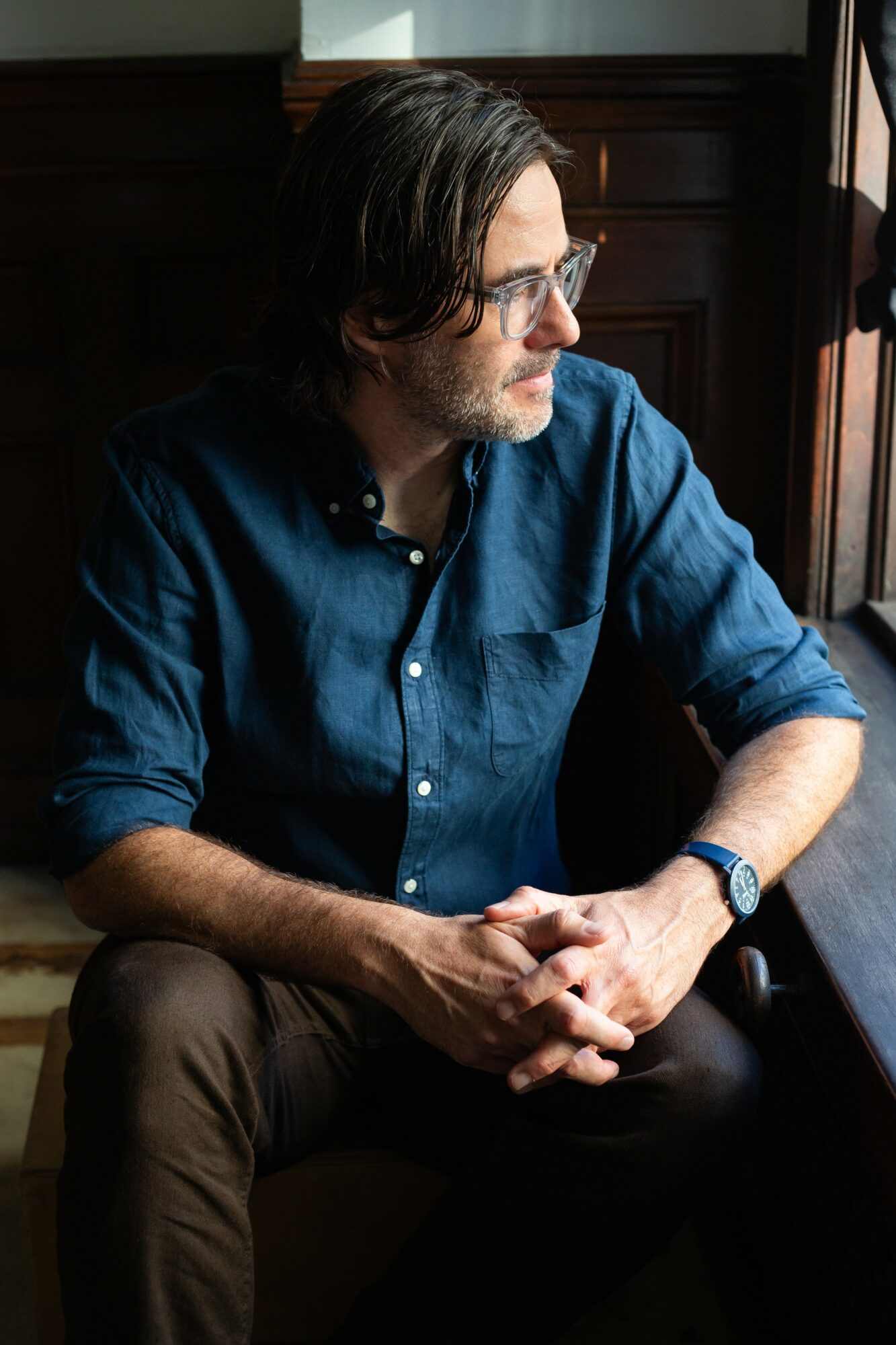

Andy McAllister shared their story and experiences with us recently and you can find our conversation below.
Hi Andy, thank you so much for taking time out of your busy day to share your story, experiences and insights with our readers. Let’s jump right in with an interesting one: What is something outside of work that is bringing you joy lately?
Oh I gotta say anything non-screen related. Yoga, strumming the old guitar, hiking, playing pinball. And I’ve never been a baseball fan, it just never took, but playing catch with my son is the most surprisingly Zen thing I can do. You sort of just lose yourself in the back and forth. I’m far from a sporty person but I really recommend everyone grab a glove and just go outside to throw the ball around.
Can you briefly introduce yourself and share what makes you or your brand unique?
I mostly edit feature documentaries. I especially love working on docs about people who have had a huge impact on our culture. I’ve edited docs on Quincy Jones, Stan Lee, Sally Ride, Karol G. And I love making docs on creatives, whether it’s Pixar animators or any number of bands. To me, not only am I a fan of what they’re making, but it’s just free wisdom on how to push through and survive creatively. I also play in the band Cave Flowers (we’re sort of country rock) and I write horror/sci-fi scripts. I grew up watching a lot of VHS classics, I was raised on Spielberg and then grew to love people like Sam Raimi and Peter Jackson so I’m always channeling that. It’s a good balance to be able to nerd out in fantasyland and then get back into real-life docs. Sometimes those two worlds blend perfectly, like when I worked on the doc Obi-Wan Kenobi: A Jedi’s Return. It felt like a dream to be working on something so deeply rooted in what inspired me growing up.
Great, so let’s dive into your journey a bit more. Who taught you the most about work?
I’d say early on, definitely my brother’s total DIY approach. This was pre-internet, so everything was just figuring it out as you go: finding little crumbs of information, borrowing stuff, and attempting to hang out with people because they might have some gear. He was a musician so he was 4-track recording on cassette tapes all the time. Using really lo-fi mics and pedals trying to make strange sounds. He also had an early computer and was writing programs. Which was totally over my head as I just thought they were for video games. But I applied all that sense of no-excuse discovery to making movies. There was a comic book shop in my small boring town which was like a beacon of light. They had a couple special effects how-to books and magazines. So I learned how to make my friend up as a zombie. I’d cut a hole in a piece of plywood, put a layer of plastic wrap, then cover it with dirt and then film him so it looked like he was bursting out of the ground. It was trying out all sorts of low budget effects like making movies about a bag of chips that attacks people. You know, very high brow stuff. I just taught myself how to edit those, using tape to tape, and kept at it as different editing programs would start to come out. So it was always learning by doing.
What’s something you changed your mind about after failing hard?
I’ve worked with a lot of different filmmakers and musicians and well, it really is a small miracle when things get made. I’ve been very lucky to work on so many cool projects but the one thing after either hitting a huge bump in the road or having any sort of failure is just that I refuse to get stuck in the problem – whatever it is. It can be really easy to sink into the mud or point fingers. And in a weird way, it can be a safe place to be because you don’t have to own the problem. But when things get chaotic or go off the rails, I’ve just embraced that you have to choose to pick yourself up and remain optimistic. And move forward. I sort of started veering away from energy vampires and negative thinkers. Because the reality is being creative doesn’t really make sense on paper. You don’t choose it for stability. There is a certain amount of delusion to convince yourself like, hey this is going to be amazing and people are going to really connect with it. But you have to fall in love with the idea, and that connection is what gets you out of the mud. You enter into a relationship with the people you’re working with where you’re all sort of storming the gates together saying, hey this story really matters and it should be heard. That requires a certain amount of faith and positivity. I think a lot of the reward is sticking with something and seeing how it evolves. That’s such a fun and surprising thing that keeps me doing this. I do think the most rewarding projects often tend to be the most challenging ones.
Next, maybe we can discuss some of your foundational philosophies and views? What’s a belief you used to hold tightly but now think was naive or wrong?
I used to think you should go all in on only one thing at a time – and make that one thing to be everything in your creative life. I’ve really learned that it’s better to have a lot of things going on, a lot of different energy involved. I think if you only go all in on one thing, you risk suffocating that thing. It doesn’t mean you’re unfocused. I actually think it makes you much more present and open to whatever project you’re currently engaged in and mindful of how it’s evolving. You can break away from it, think about other things that are exciting to you, and go back to it with renewed energy. That’s what I love about being able to bounce from film to music and back, is that it’s always a great reset. With music, you’re not dealing with notes or waiting for permission, you just go and do it. So sure, you don’t want to have so many things going on that you’re overwhelmed. But if you have a handful of projects that you’re able to engage with and push forward, and keep giving some love to, I do think that keeps you from burning out and open about the possibilities of things.
Okay, so before we go, let’s tackle one more area. What are you doing today that won’t pay off for 7–10 years?
Sometimes it feels like everything. Feature documentaries take a long time to make. Shooting can take years, editing takes a year, sometimes two, then doing festivals, finding distribution and even before that, just developing, pitching, and chasing funding is not quick. As someone who often comes in after shooting, I’m at least looking at the finish line, which still takes quite a while to reach before someone sees it. But if you do it long enough, the projects eventually catch up and get out there, and people say, “Wow you were editing that forever ago!” There are some amazing people I’ve worked with over the years on docs, and I’ll break away for a project and then come back to do another with them. We’re sort of all long-haulers, and I really like that camaraderie of coming back to a familiar team. But I will say what I love about playing music, in contrast, is the immediacy. You can get asked to play a show in Joshua Tree, go out there, and feel an immediate rush. So, it’s all a balancing act, and I count myself very lucky to be doing all this.
Contact Info:
- Website: https://www.filmwelder.com/
- Instagram: https://www.instagram.com/andy__mcallister/
- Other: CAVE FLOWERS
INSTAGRAM: https://www.instagram.com/caveflowers/
SPOTIFY: https://open.spotify.com/artist/2NxCWSiZy71MHWnKcxahH2?si=OO8G6CxZSPOAE3j7wEh_kw
BANDCAMP: https://caveflowers.bandcamp.com


Image Credits
Angela L. Torres














